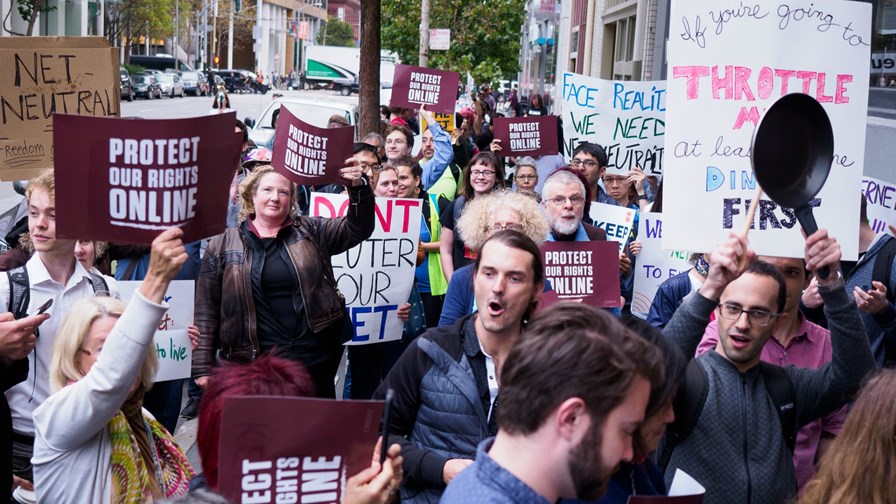
via Flickr © credo.action (CC BY 2.0)
- The FCC made its move last month and ended regulated Net Neutrality in the US
- But that doesn't mean it's going away
- Now market forces are going to be brought to bear
US telcos often used the term ‘overreach’ to describe the Federal Communication Commission’s (FCC’s) move to underpin net neutrality with Title II reclassification for broadband Internet access providers, enabling regulation to ensure that they played fair - no throttling, blocking, or commercial discrimination.
But now - despite widespread public opposition - the Obama era regulation has been overturned by the new FCC and its gung-ho chairman, Ajit Pai, and it looks like the ‘overreach’ might be in the other direction. For Pai and his cronies at the FCC didn’t just loosen up the regulation to give some non-neutral wriggle-room to the big telcos and cable companies, they threw out the entire net neutrality concept in a dramatic act of total deregulation. That has surprised all, enraged many, and flagged up some new business opportunities.
In classic fashion the ‘Internet’ may be about to view any non-neutral moves by the big ISPs as “damage” and - as the old 1990s saying goes - is preparing “to route around it.”
Innovation?
The most obvious response is to champion ISPs (probably tier 2s and community-based outfits) who loudly and publicly undertake to stay neutral and use this positioning as their key USP (unique selling point). It’s early days, but we can eventually expect to see some moves of this kind.
Another big hope lies with municipal broadband networks. Advocates have long seen municipal government involvement in broadband and fibre provision as - at the very least - a spur to more competition in broadband (in the US many areas are served by just one or two incumbent providers) and at best a harbinger of a ‘utility’ model for broadband and internet access, putting fibre access, for instance, alongside other utilities such as electricity or water - access to which is elevated to the status of crucial human right.
The big ISPs are well aware of the dangers here and have long been fighting furiously to influence the individual states to pass legislation limiting or banning the involvement of local government in broadband provision, just in case the utility approach turns out to be a winner. In some states this political activity has been very successful in blocking the spread of municipal networks, usually by promoting the idea that municipalities are inherently lousy at running things and will inevitably stack up big losses which the local taxpayers will be burdened with for decades.
Nobody seems to have noticed that corporates can, and often do, stack up huge losses themselves by making epic investment mistakes (think back to Microsoft buying Nokia - strangely we’ve yet to hear calls for the world’s pension funds to be protected by turning those businesses over local government).
Other groups are talking quietly about sneaking around ISPs via adapted VPN technology.
Building new access
The net neutrality move is also bound to energise local or community broadband. One of the most notable moves (no doubt to be joined soon by others) comes from a tech website called Motherboard and its Brooklyn-based parent company, Vice Media. It says it’s intending to build a community ISP and develop a guide to help other groups build locally-owned Internet services.
Motherboard is predictably high-minded, talking of the need to preserve net neutrality and the free and open internet by ending reliance on monopolistic corporations. Instead it wants to see communities build “internet infrastructure that is locally owned and operated and is dedicated to serving the people who connect to it.
“The good news is a better internet infrastructure is possible: Small communities, nonprofits, and startup companies around the United States have built networks that rival those built by big companies. Because these networks are built to serve their communities rather than their owners, they are privacy-focused and respect net neutrality ideals. These networks are proofs-of-concept around the country that a better internet is possible.”
Well, maybe. It’s going to be an interesting ride.
Email Newsletters
Sign up to receive TelecomTV's top news and videos, plus exclusive subscriber-only content direct to your inbox.




